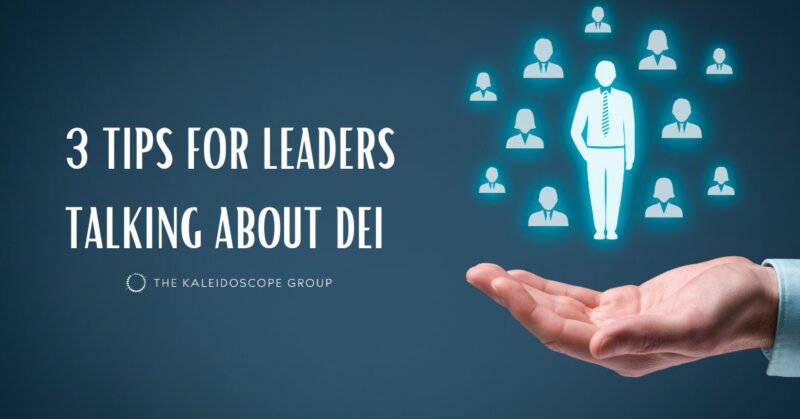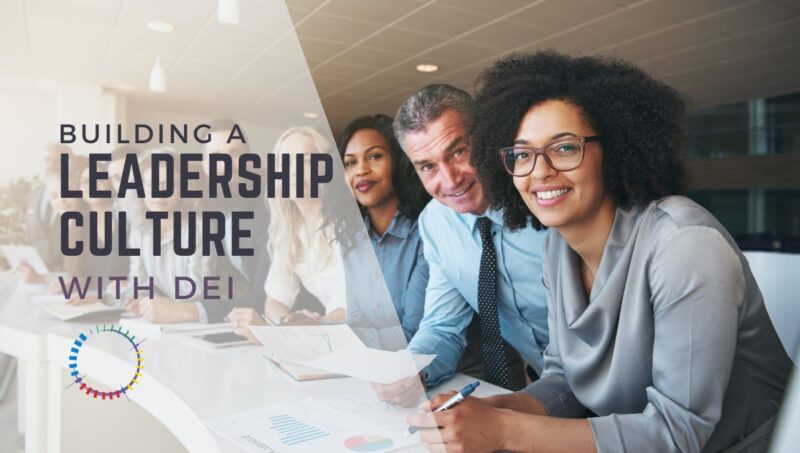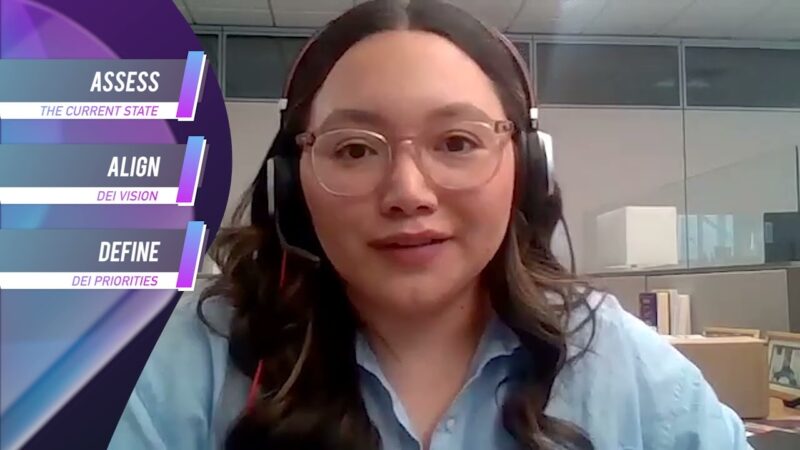Unity: What’s Really Missing from Diversity, Equity and Inclusion Initiatives
April 30, 2024

Diversity, Equity, and Inclusion (DEI) have been critical topics in the modern workplace for decades, but their importance has been constantly evolving as society and culture continue to shift. Leading organizations are navigating this changing landscape and know they must adapt approaches to creating inclusive and equitable environments in order to achieve both mission and business goals. The concept of DEI itself has undergone transformations, reflecting the growing understanding of the complexities involved in building truly diverse and inclusive workplaces. The letter B has often been added to the acronym as a deeper interpretation of what may be missing from past initiatives. However, despite the addition of “Belonging” to the DEI acronym, many initiatives still struggle to create lasting change.
The Limitations of DEIB and the Power of Unity
While the addition of “Belonging” to the DEI acronym has been a step in the right direction, it often fails to address the root issues. Belonging focuses on making individuals feel valued and accepted, but it doesn’t necessarily foster a sense of collective strength and purpose. To create truly inclusive environments, we need to move beyond individual differences and focus on the power of unity.
Unity is more than just a feeling of belonging—it’s about bringing people together across lines of difference to achieve a common goal. When teams are united, they can leverage each individual’s unique strengths and perspectives, leading to increased innovation, problem-solving, and overall success. Unity also helps to break down barriers and promote a culture of respect and collaboration.
But while many forward-thinking teams have been trying to iterate upon and improve the practice of DEI, there has also been a growing backlash against this movement. In some parts of the world – notably the USA – this backlash has even turned into a pronounced criticism of the practice’s core values, often because people don’t fully understand them. This opposition can be intentional, with some individuals actively resisting change or unintentional, stemming from a lack of understanding. Regardless of the motivation of the challenge to the practice of DEI, the result is the same – some organizations have been reticent to continue DEI investment, and others have abandoned them altogether. In a time when the importance of DEI work is critical, some companies are left with no means to advance any of those goals. There needs to be actual funding, training and support for engaging in open and honest conversations, investing in educating others about the benefits of diversity and inclusion, and continuing to address biases head-on.
Some of the criticism of how DEI has been practiced is warranted. First, it is important to acknowledge this and welcome the feedback. In fact, organizations can create a more supportive environment for DEI efforts by fostering a culture of transparency and accountability and handling criticism as an opportunity for improvement.
DEI is not a static concept – it requires ongoing effort and a willingness to adapt to changing needs and circumstances. As organizations evolve and new challenges arise, it’s essential to remain open to new ideas and approaches. This means engaging in ongoing conversations with everyone, seeking feedback, and being willing to make changes when necessary. By embracing flexibility and continuous improvement, organizations can create more inclusive and equitable environments that benefit everyone. After all, the willingness to change and grow is a foundational tenant of effective DEI practice.
Instead of abandoning DEI, the opportunity now is for its expansion. What could be the right answer if the notion of belonging was not enough to expand the thinking and make material change?
NOTES FROM THE FIELD
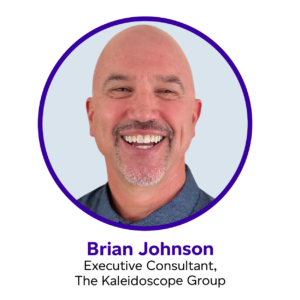 My wife and I took a trip to Kenya and Tanzania and tried to immerse ourselves in the vibrant culture. We participated in unfamiliar customs, foods, and traditions. Instead of holding on to the familiar or focusing on the stark differences from our own cultural background, we embraced the opportunity to connect with new experiences and people. We didn’t want to ERADICATE the differences, but EXPERIENCE them and ENJOY them. And we would be EXPANDED because of it.
My wife and I took a trip to Kenya and Tanzania and tried to immerse ourselves in the vibrant culture. We participated in unfamiliar customs, foods, and traditions. Instead of holding on to the familiar or focusing on the stark differences from our own cultural background, we embraced the opportunity to connect with new experiences and people. We didn’t want to ERADICATE the differences, but EXPERIENCE them and ENJOY them. And we would be EXPANDED because of it.
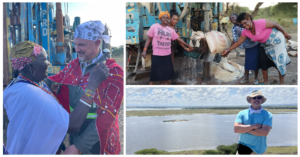
We tried to move beyond just enjoying surface-level differences. By opening our hearts and minds to a new culture, we were able to create lasting memories and – I hope – forge meaningful connections.It was an example to me of what can happen in the workplace – where people from diverse backgrounds can come together and learn from one another.
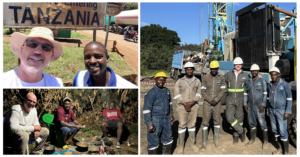
As a DEI consultant and DEIU implementer, I draw from this experience to start deeper conversations about what it means to be unified in the world and how that translates to the workplace. I’m so happy to share this story with anyone and demonstrate how it informs how I show up for life and work in my own, unique way!
Investment in unity has numerous benefits for organizations. It can enhance a company’s reputation as an inclusive and socially responsible employer, attracting top talent who value diversity and inclusion. Unity also promotes increased employee satisfaction and engagement, leading to lower turnover rates and higher productivity. Additionally, diverse teams that are united in purpose are more likely to generate innovative ideas and solutions, giving organizations a competitive edge in their industry.
While DEI initiatives have made progress in recent years, there is still much work to be done. By embracing the concept of unity – seeing our differences, acknowledging them and working together with those differences, organizations can create truly inclusive environments where everyone feels valued, respected, and empowered to succeed. The success of a unified workforce has business implications. For better brand impact, the questions that matter are:
Who do we want to be as a vibrant organization?
Start a conversation about how important it is for your team to have a great experience while doing your life’s work.
What do you want to add to DEI initiatives?
Start a conversation about what is missing in your current practice and allow your team to dream a bigger dream that puts the human at the heart of every decision while you accomplish your organizational goals.
The Expansiveness of Unity
Diversity, equity, inclusion and belonging may well be improved with notions of unity. The acronym is not important. What is important is the continual improvement of our practice that brings people together and creates something better for all. The more expansive notion of unity may be the key to unlocking the true potential of diverse teams and organizations.
Unity goes beyond simple belonging by fostering a sense of collective purpose and shared values. It recognizes that our differences, when leveraged, can be a source of strength and innovation. By focusing on unity in diversity, we create an environment where everyone feels valued, respected, and empowered to contribute their unique perspectives and skills.
However, achieving unity is not a one-time event. It requires ongoing effort, flexibility, and a willingness to learn and adapt. As our world continues to evolve, so too must our approaches to diversity, equity, and inclusion. We must remain open to new ideas, engage in difficult conversations, and be willing to challenge our own biases and assumptions. Unity is the missing piece in many diversity, equity, and inclusion initiatives. By embracing this concept, organizations can navigate the complexities of building truly inclusive environments, driving better business outcomes and creating a more just and equitable world.
When we work toward unity, we are creating workplaces where people, in all their differences, are valued and able to make a valuable contribution. We will also have workplaces where diversity is welcome, equity is upheld, and inclusion is the norm. With this mindset, we can take both an honest approach to our own self-reflection and when we review any DEI assessment and use that information to create lasting change and a more meaningful experience as we achieve our business goals.
